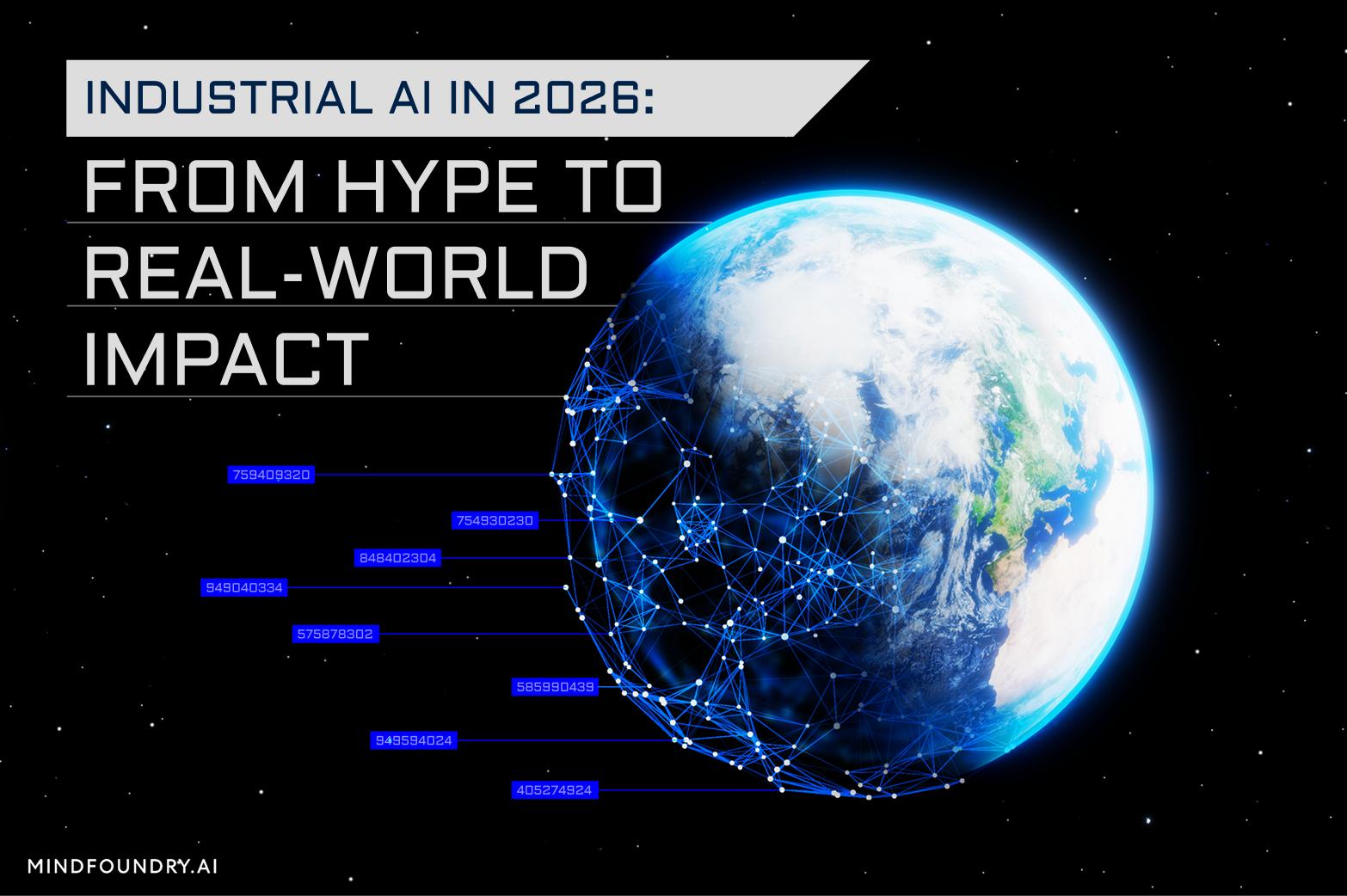AI-enabled Acoustic Intelligence for Anti-Submarine Warfare
From detecting hidden threats to defending critical underwater infrastructure, Anti-Submarine Warfare (ASW) is a cornerstone of national security. AI...
3 min read
Mind Foundry
:
Updated on April 10, 2024

While machine learning has been around for decades, it has swiftly become a major buzzword in recent years. Following in the footsteps of 'digital transformation', many businesses are struggling to comprehend the intrinsic value of machine learning and the ways in which it can be implemented successfully.
The Barrier to Machine Learning Adoption
Part of this struggle stems from the fact that machine learning applications today essentially operate as 'black boxes' that turn data input into a machine learning model output.
Not being able to access the knowledge contained within the machine creates an impenetrable barrier between that output and being confident that the solution can be trusted for real-world application. It's a matter of confidence and trust. There is, therefore, a growing need for solutions that are capable of providing explanations to back up their answers.
"There is now hope that the same techniques will be able to diagnose deadly diseases, make million-dollar trading decisions, and do countless other things to transform whole industries.
But this won’t happen—or shouldn’t happen—unless we find ways of making techniques like deep learning more understandable to their creators and accountable to their users." - Technology Review
Couple the black-box nature of machine learning with the growing fear that AI and machine learning will replace jobs, and businesses are left at a crossroads. Are the benefits of machine learning really worth the effort and the risk?
What is humanised machine learning?
Ultimately, the computer will always have to collaborate with a human when applying machine learning. The trick is realising what is uniquely human and then designing technology to orient around the valuable contribution that people should be invited to make.
Humans have the unique capability to contextualise data and associated errors, while computers and machine learning have the ability to process data at a scale that is impossible for the human brain.
To ensure success in terms of solving actual business problems, machine learning technology needs to form part of a human team by augmenting human skills, intelligence and capabilities to make their inputs an integral part of solutions.
This is where humanised machine learning comes in. Human-in-the-loop machine learning educates individuals through the process, invites domain expert inputs and explains the reasoning behind decisions that are output.
Humanised machine learning platforms draw a line between ‘human’ tasks and ‘computer’ tasks, taking on repetitive and labour-intensive tasks such as data cleaning, data-driven model discovery and model validation. Problem owners are thereby empowered to focus their time and valuable business expertise more directly on the business problems at hand.
As a result, a humanised machine learning solution creates a symbiotic relationship between algorithms and humans. It offers continual education about the machine's actions and output, actively involves the business user in the decision-making process, and ultimately guarantees resulting solutions are derived from the best possible combination of strengths that people and machines can bring to bear on complex, data-intensive tasks.
What does this mean for you?
Now, for the first time, business problem owners can directly identify and enhance the value of their data by quickly harnessing machine intelligence at scale.
For this reason, machine learning is set to become increasingly common among businesses of all sizes as they push to optimise operations and future-proof themselves. Despite the undeniable power of data-driven analytics and machine-calculated predictions, business problem owners will remain the key to the successful deployment of machine learning technology.
Machine learning platforms and humans have complementary skill sets. On the one hand, machine learning will always have the potential to produce unbiased data-driven judgements, effective risk assessments and computationally determined insights that are beyond human capabilities. That said, knowledge not contained within the data is out of reach of machine learning.
On the other hand, business problem owners will always have a unique and intimate knowledge of a specific problem and its relevance to existing business priorities. People have theories and hypotheses. People can come up with creative and novel ideas when data is non-existent or scarce. These theories, hypotheses and creative ideas provide a logic for what data to seek and organise. Humans then have a unique ability to contextualise data for problem-solving by interjecting guidance that is essential for devising optimal machine-learning solutions.
The big transformation in business that all the hype is about generally will not come from a small number of in-house machine learning experts, nor will it come from the use of black-box machine learning automation technologies. Many businesses will realise the promised value of machine learning only once business users across an organisation can be given direct access to point-and-click tools designed just for them which enable the rapid development of business problem solutions that they can influence, understand, trust and apply.

From detecting hidden threats to defending critical underwater infrastructure, Anti-Submarine Warfare (ASW) is a cornerstone of national security. AI...

The UK-USA Technology Prosperity Deal sees overseas organisations pledging £31 billion of investment into UK AI infrastructure. As AI investment...

Industrial AI is increasingly coming to the fore in physical industries, but achieving measurable real-world impact requires careful consideration...